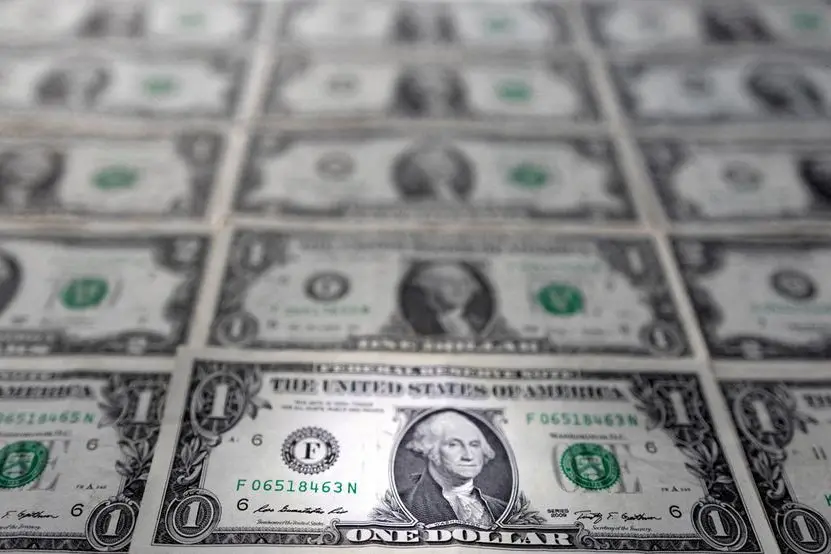PHOTO
SINGAPORE - The U.S. dollar retreated on Wednesday as the euro extended its overnight bounce on relief Europe might be able to avoid the worst fears concerning energy shortages, and on the chance the European Central Bank may deliver a more aggressive rate hike.
Russian gas flows via the Nord Stream 1 pipeline are seen restarting on time on Thursday after the completion of scheduled maintenance, Reuters reported on Tuesday.
The euro was up nearly 0.2% in the early Asia trade to $1.0239, having posted its strongest daily gain in a month of 0.75% overnight.
Aiding sentiment was news that the ECB is considering raising interest rates by a larger-than-expected 50 basis points at their meeting on Thursday.
"If we do see Russian gas flows resume tomorrow, that will be good news for the euro/dollar and in the near term, euro can get a little boost and get away further from parity," said Carol Kong, a currency strategist at Commonwealth Bank of Australia.
"But I am still worried about the euro/dollar, I think downsides still persist ... the potential hawkish pivot from the ECB may not be able to give sustained support."
The euro has lost about 2.3% since the beginning of July, and broke parity for the first time in two decades last week following a red-hot U.S. inflation print and fears about a sharp economic downturn in the eurozone.
Other major currencies similarly rallied on the back of the weakening greenback, and as central banks around the world become more hawkish in their efforts to tame soaring inflation.
The U.S. currency's retreat has also coincided with reduced expectations of a supersized 100-basis-point rate hike at next week's Federal Reserve policy review.
The Aussie was steady at $0.69055, after rising 1.3% on the day overnight, also the largest in a month.
Minutes of the Reserve Bank of Australia's (RBA) July policy meeting out the day earlier showed that the central bank sees a need for more policy tightening to curb inflation.
Earlier on Wednesday, RBA Governor Philip Lowe also suggested that rates could at least double from current low levels.
Sterling likewise advanced 0.15% to $1.20145.
Bank of England Governor Andrew Bailey said on Tuesday that a 50-basis-point rate hike will be "among the choices on the table" at the BoE's next meeting.
The U.S. dollar index measure against a basket of key currencies was down 0.08% to 106.58, well off its two-decade peak of 109.29 last week.
Ahead of the Fed's meeting next week, markets are pricing in a 23.2% chance of a 100 bp rate hike., with expectations of the jumbo rate increase easing after policymakers were quick to pour cold water on it.
"As markets continue to price out FOMC rate hikes from the markets, I think that will take some pressure off the U.S. dollar, but I don't think any dollar weakness will last long, just given the deteriorating global growth outlook," said CBA's Kong.
Conversely, the Japanese yen remained an outlier on Wednesday morning, and last traded 138.155 per dollar, as the Bank of Japan seems determined to stand by its dovish stance.
"Sticking to its dovish guns will entail sharpening policy trade-offs for the BoJ. The most pressing of which, is the sharp drop in the JPY; which has fallen a gut-wrenching 20-21% since the September FOMC," said Vishnu Varathan, head of economics and strategy at Mizuho Bank in Singapore.
Over in the cryptoverse, Bitcoin was down about 1.2% to $23,000, having bounced off the $20,000 mark in recent days.
(Reporting by Rae Wee in Singapore and Alun John in Hong Kong Editing by Shri Navaratnam)





















